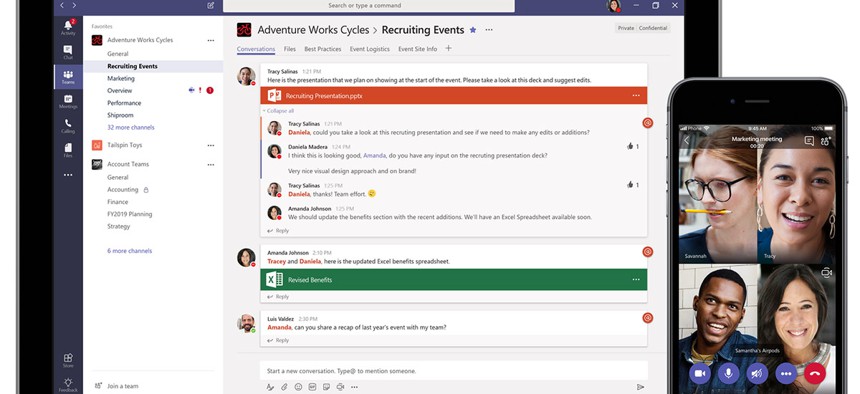Microsoft Is Putting Slack On Notice

Microsoft
The company's new product appears positioned to directly compete with Slack’s free offering.
Microsoft announced that it’s launching a free version of its Teams software today, July 12.
The company first introduced Teams last year as its answer to the communication tool Slack that has swept workplaces across the U.S., and raised reams of cash in its short history. Slack currently has around 8 million daily users, 3 million of whom are paid subscribers.
The new free Teams is aimed at small and medium-size businesses. It’ll be free for an organization’s first 300 users, and each user will be given 2 GB of storage, along with 10 GB that the team can share.
Microsoft’s new product appears positioned to directly compete with Slack’s free offering. Teams is available in 40 automatically translated languages, offers free group video and voice calling, is deeply integrated with Microsoft Office, and can connect up to 140 other apps, including the popular task-management software, Trello, and Evernote.

Unlike Slack, there are no limits on how many messages users can send on the free tier, or on the app’s search functions. Teams users can also invite people who don’t work at their organization to groups on Teams, without exposing them to sensitive messages in other groups. After a team butts up against the storage or user limits, they’ll be asked to upgrade to the premium service, which costs $5 per user, per month.
The premium version also has a few nifty features that might be worth upgrading to in themselves. There’s a function where users can blur what’s behind them on video calls, which will be especially useful if you have an important work call you need to take from your messy bedroom (this feature will eventually make it to the free version as well).
Premium subscribers also get far more storage, and can search closed-captions that are automatically generated from recorded meetings. The paid version also integrates with the rest of the Office 365 suite of services, and has stronger security and more support options.
Microsoft isn’t the only company vying for workers’ attention. Facebook launched Workplace in 2016, and announced in October that it had 30,000 organizations signed up. Atlassian also offers HipChat, and IBM has its Lotus offerings, but Microsoft will be looking to provide a more modern approach to workplace software. And as much as the company likes to push its cloud offerings as its future, business software is still its bread-and-butter for now.





